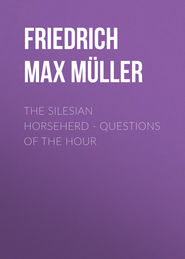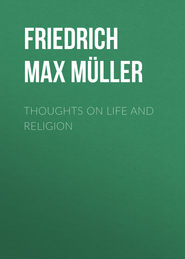По всем вопросам обращайтесь на: info@litportal.ru
(©) 2003-2024.
✖
Memories: A Story of German Love
Настройки чтения
Размер шрифта
Высота строк
Поля
In truth, together do ye seem
Like something fashioned in a dream;
Such forms as from their covert peep
When earthly cares are laid asleep!
But, O fair creature! in the light
Of common day, so heavenly bright,
I bless thee, vision as thou art,
I bless thee with a human heart;
God shield thee to thy latest years!
Thee neither know I, nor thy peers;
And yet my eyes are filled with tears.
With earnest feeling I shall pray
For thee when I am far away;
For never saw I mien or face,
In which more plainly I could trace
Benignity and home-bred sense
Ripening in perfect innocence.
Here scattered, like a random seed,
Remote from men, thou dost not need
The embarrassed look of shy distress,
And maidenly shamefacedness:
Thou wear'st upon thy forehead clear
The freedom of a mountaineer:
A face with gladness overspread!
Soft smiles, by human kindness bred!
And seemliness complete, that sways
Thy courtesies, about thee plays;
With no restraint, but such as springs
From quick and eager visitings
Of thoughts that lie beyond the reach
Of thy few words of English speech:
A bondage sweetly brooked, a strife
That gives thy gestures grace and life!
So have I, not unmoved in mind,
Seen birds of tempest-loving kind—
Thus beating up against the wind.
What hand but would a garland cull
For thee who art so beautiful?
O happy pleasure! here to dwell
Beside thee in some heathy dell;
Adopt your homely ways and dress,
A shepherd, thou a shepherdess:
But I could frame a wish for thee
More like a grave reality:
Thou art to me but as a wave
Of the wild sea; and I would have
Some claim upon thee, if I could,
Though but of common neighborhood
What joy to hear thee, and to see!
Thy elder brother I would be,
Thy father—anything to thee!
Now thanks to heaven! that of its grace
Hath led me to this lonely place.
Joy have I had; and going hence
I bear away my recompense.
In spots like these it is we prize
Our memory, feel that she hath eyes:
Then why should I be loth to stir?
I feel this place was made for her;
To give new pleasure like the past,
Continued long as life shall last.
Nor am I loth, though pleased at heart,
Sweet Highland Girl, from thee to part;
For I, methinks, till I grow old,
As fair before me shall behold,
As I do now, the cabin small,
The lake, the bay, the waterfall,
And thee, the spirit of them all!
I had finished, and the poem had been to me like a draught of the fresh spring-water which I had sipped so often of late as it dropped from the cup of some large green leaf.
Then I heard her gentle voice, like the first tone of the organ, which wakens us from our dreamy devotion, and she said:
"Thus I desire you to love me, and thus the old Hofrath loves me, and thus in one way or another we should all love and believe in each other. But the world, although I scarcely know it, does not seem to understand this love and faith, and, on this earth, where we could have lived so happily, men have made existence very wretched.
"It must have been otherwise of old, else how could Homer have created the lovely, wholesome, tender picture of Nausikaa? Nausikaa loves Ulysses at the first glance. She says at once to her female friends: 'Oh, that I could call such a man my spouse, and that it were his destiny to remain here.' She was even too modest to appear in public at the same time with him, and she says, in his presence, that if she should bring such a handsome and majestic stranger home, the people would say, she may have taken him for a husband. How simple and natural all this is! But when she heard that he was going home to his wife and children, no murmur escaped her. She disappears from our sight, and we feel that she carried the picture of the handsome and majestic stranger a long time afterward in her breast, with silent and joyful admiration. Why do not our poets know this love—this joyful acknowledgment, this calm abnegation? A later poet would have made a womanish Werter out of Nausikaa, for the reason that love with us is nothing more than the prelude to the comedy, or the tragedy, of marriage. Is it true there is no longer any other love? Has the fountain of this pure happiness wholly dried up? Are men only acquainted with the intoxicating draught, and no longer with the invigorating well-spring of love?"
At these words the English poet occurred to me, who also thus complains:
From heaven if this belief be sent,
If such be nature's holy plan,
Have I not reason to lament
What man has made of man.
"Yet, how happy the poets are," said she. "Their words call the deepest feelings into existence in thousands of mute souls, and how often their songs have become a confession of the sweetest secrets! Their heart beats in the breasts of the poor and the rich. The happy sing with them, and the sad weep with them. But I cannot feel any poet so completely my own as Wordsworth. I know many of my friends do not like him. They say he is not a poet. But that is exactly why I like him; he avoids all the hackneyed poetical catch-words, all exaggeration, and everything comprehended in Pegasus-flights. He is true—and does not everything lie in this one word? He opens our eyes to the beauty which lies under our feet like the daisy in the meadow. He calls everything by its true name. He never intends to startle, deceive, or dazzle any one. He seeks no admiration for himself. He only shows mankind how beautiful everything is which man's hand has not yet spoiled or broken. Is not a dew-drop on a blade of grass more beautiful than a pearl set in gold? Is not a living spring, which gushes up before us, we know not whence, more beautiful than all the fountains of Versailles? Is not his Highland Girl a lovelier and truer expression of real beauty than Goethe's Helena, or Byron's Haidee? And then the plainness of his language, and the purity of his thoughts! Is it not a pity that we have never had such a poet? Schiller could have been our Wordsworth, had he had more faith in himself than in the old Greeks and Romans. Our Ruckert would come the nearest to him, had he not also sought consolation and home under Eastern roses, away from his poor Fatherland. Few poets have the courage to be just what they are. Wordsworth had it; and as we gladly listen to great men, even in those moments when they are not inspired, but, like other mortals, quietly cherish their thoughts, and patiently wait the moment that will disclose new glimpses into the infinite, so have I also listened gladly to Wordsworth himself, in his poems, which contain nothing more than any one might have said. The greatest poets allow themselves rest. In Homer we often read a hundred verses without a single beauty, and just so in Dante; while Pindar, whom all admire so much, drives me to distraction with his ecstacies. What would I not give to spend one summer on the lakes; visit with Wordsworth all the places to which he has given names; greet all the trees which he has saved from the axe; and only once watch a far-off sunset with him, which he describes as only Turner could have painted."
It was a peculiarity of hers that her voice never dropped at the close of her talk, as with most people; on the contrary, it rose and always ended, as it were, in the broken seventh chord. She always talked up, never down, to people. The melody of her sentences resembled that of the child when it says: "Can't I, father?" There was something beseeching in her tones, and it was well-nigh impossible to gainsay her.
"Wordsworth," said I, "is a dear poet, and a still dearer man to me, and as one often has a more beautiful, wide-spread, and stirring outlook from a little hill which he ascends without effort, than when he has clambered up Mont Blanc with difficulty and weariness, so it seems to me with Wordsworth's poetry. At first, he often appeared commonplace to me, and I have frequently laid down his poems unable to understand how the best minds of England to-day can cherish such an admiration for him. The conviction has grown upon me that no poet whom his nation, or the intellectual aristocracy of his people, recognize as a poet, should remain unenjoyed by us, whatever his language. Admiration is an art which we must learn. Many Germans say Racine does not please them. The Englishman says, 'I do not understand Goethe.' The Frenchman says Shakespeare is a boor. What does all this amount to? Nothing more than the child who says it likes a waltz better than a symphony of Beethoven's. The art consists in discovering and understanding what each nation admires in its great men. He who seeks beauty will eventually find it, and discover that the Persians are not entirely deceived in their Hafiz, nor the Hindoos in their Kalidasa. We cannot understand a great man all at once. It takes strength, effort, and perseverance, and it is singular that what pleases us at first sight seldom captivates us any length of time.
"And yet," she continued, "there is something common to all great poets, to all true artists, to all the world's heroes, be they Persian or Hindoo, heathen or Christian, Roman or German; it is—I hardly know what to call it—it is the Infinite which seems to lie behind them, a far away glance into the Eternal, an apotheosis of the most trifling and transitory things. Goethe, the grand heathen, knew the sweet peace which comes from Heaven; and when he sings:
"On every mountain-height
Is rest.
O'er each summit white
Thou feelest
Scarcely a breath.
Like something fashioned in a dream;
Such forms as from their covert peep
When earthly cares are laid asleep!
But, O fair creature! in the light
Of common day, so heavenly bright,
I bless thee, vision as thou art,
I bless thee with a human heart;
God shield thee to thy latest years!
Thee neither know I, nor thy peers;
And yet my eyes are filled with tears.
With earnest feeling I shall pray
For thee when I am far away;
For never saw I mien or face,
In which more plainly I could trace
Benignity and home-bred sense
Ripening in perfect innocence.
Here scattered, like a random seed,
Remote from men, thou dost not need
The embarrassed look of shy distress,
And maidenly shamefacedness:
Thou wear'st upon thy forehead clear
The freedom of a mountaineer:
A face with gladness overspread!
Soft smiles, by human kindness bred!
And seemliness complete, that sways
Thy courtesies, about thee plays;
With no restraint, but such as springs
From quick and eager visitings
Of thoughts that lie beyond the reach
Of thy few words of English speech:
A bondage sweetly brooked, a strife
That gives thy gestures grace and life!
So have I, not unmoved in mind,
Seen birds of tempest-loving kind—
Thus beating up against the wind.
What hand but would a garland cull
For thee who art so beautiful?
O happy pleasure! here to dwell
Beside thee in some heathy dell;
Adopt your homely ways and dress,
A shepherd, thou a shepherdess:
But I could frame a wish for thee
More like a grave reality:
Thou art to me but as a wave
Of the wild sea; and I would have
Some claim upon thee, if I could,
Though but of common neighborhood
What joy to hear thee, and to see!
Thy elder brother I would be,
Thy father—anything to thee!
Now thanks to heaven! that of its grace
Hath led me to this lonely place.
Joy have I had; and going hence
I bear away my recompense.
In spots like these it is we prize
Our memory, feel that she hath eyes:
Then why should I be loth to stir?
I feel this place was made for her;
To give new pleasure like the past,
Continued long as life shall last.
Nor am I loth, though pleased at heart,
Sweet Highland Girl, from thee to part;
For I, methinks, till I grow old,
As fair before me shall behold,
As I do now, the cabin small,
The lake, the bay, the waterfall,
And thee, the spirit of them all!
I had finished, and the poem had been to me like a draught of the fresh spring-water which I had sipped so often of late as it dropped from the cup of some large green leaf.
Then I heard her gentle voice, like the first tone of the organ, which wakens us from our dreamy devotion, and she said:
"Thus I desire you to love me, and thus the old Hofrath loves me, and thus in one way or another we should all love and believe in each other. But the world, although I scarcely know it, does not seem to understand this love and faith, and, on this earth, where we could have lived so happily, men have made existence very wretched.
"It must have been otherwise of old, else how could Homer have created the lovely, wholesome, tender picture of Nausikaa? Nausikaa loves Ulysses at the first glance. She says at once to her female friends: 'Oh, that I could call such a man my spouse, and that it were his destiny to remain here.' She was even too modest to appear in public at the same time with him, and she says, in his presence, that if she should bring such a handsome and majestic stranger home, the people would say, she may have taken him for a husband. How simple and natural all this is! But when she heard that he was going home to his wife and children, no murmur escaped her. She disappears from our sight, and we feel that she carried the picture of the handsome and majestic stranger a long time afterward in her breast, with silent and joyful admiration. Why do not our poets know this love—this joyful acknowledgment, this calm abnegation? A later poet would have made a womanish Werter out of Nausikaa, for the reason that love with us is nothing more than the prelude to the comedy, or the tragedy, of marriage. Is it true there is no longer any other love? Has the fountain of this pure happiness wholly dried up? Are men only acquainted with the intoxicating draught, and no longer with the invigorating well-spring of love?"
At these words the English poet occurred to me, who also thus complains:
From heaven if this belief be sent,
If such be nature's holy plan,
Have I not reason to lament
What man has made of man.
"Yet, how happy the poets are," said she. "Their words call the deepest feelings into existence in thousands of mute souls, and how often their songs have become a confession of the sweetest secrets! Their heart beats in the breasts of the poor and the rich. The happy sing with them, and the sad weep with them. But I cannot feel any poet so completely my own as Wordsworth. I know many of my friends do not like him. They say he is not a poet. But that is exactly why I like him; he avoids all the hackneyed poetical catch-words, all exaggeration, and everything comprehended in Pegasus-flights. He is true—and does not everything lie in this one word? He opens our eyes to the beauty which lies under our feet like the daisy in the meadow. He calls everything by its true name. He never intends to startle, deceive, or dazzle any one. He seeks no admiration for himself. He only shows mankind how beautiful everything is which man's hand has not yet spoiled or broken. Is not a dew-drop on a blade of grass more beautiful than a pearl set in gold? Is not a living spring, which gushes up before us, we know not whence, more beautiful than all the fountains of Versailles? Is not his Highland Girl a lovelier and truer expression of real beauty than Goethe's Helena, or Byron's Haidee? And then the plainness of his language, and the purity of his thoughts! Is it not a pity that we have never had such a poet? Schiller could have been our Wordsworth, had he had more faith in himself than in the old Greeks and Romans. Our Ruckert would come the nearest to him, had he not also sought consolation and home under Eastern roses, away from his poor Fatherland. Few poets have the courage to be just what they are. Wordsworth had it; and as we gladly listen to great men, even in those moments when they are not inspired, but, like other mortals, quietly cherish their thoughts, and patiently wait the moment that will disclose new glimpses into the infinite, so have I also listened gladly to Wordsworth himself, in his poems, which contain nothing more than any one might have said. The greatest poets allow themselves rest. In Homer we often read a hundred verses without a single beauty, and just so in Dante; while Pindar, whom all admire so much, drives me to distraction with his ecstacies. What would I not give to spend one summer on the lakes; visit with Wordsworth all the places to which he has given names; greet all the trees which he has saved from the axe; and only once watch a far-off sunset with him, which he describes as only Turner could have painted."
It was a peculiarity of hers that her voice never dropped at the close of her talk, as with most people; on the contrary, it rose and always ended, as it were, in the broken seventh chord. She always talked up, never down, to people. The melody of her sentences resembled that of the child when it says: "Can't I, father?" There was something beseeching in her tones, and it was well-nigh impossible to gainsay her.
"Wordsworth," said I, "is a dear poet, and a still dearer man to me, and as one often has a more beautiful, wide-spread, and stirring outlook from a little hill which he ascends without effort, than when he has clambered up Mont Blanc with difficulty and weariness, so it seems to me with Wordsworth's poetry. At first, he often appeared commonplace to me, and I have frequently laid down his poems unable to understand how the best minds of England to-day can cherish such an admiration for him. The conviction has grown upon me that no poet whom his nation, or the intellectual aristocracy of his people, recognize as a poet, should remain unenjoyed by us, whatever his language. Admiration is an art which we must learn. Many Germans say Racine does not please them. The Englishman says, 'I do not understand Goethe.' The Frenchman says Shakespeare is a boor. What does all this amount to? Nothing more than the child who says it likes a waltz better than a symphony of Beethoven's. The art consists in discovering and understanding what each nation admires in its great men. He who seeks beauty will eventually find it, and discover that the Persians are not entirely deceived in their Hafiz, nor the Hindoos in their Kalidasa. We cannot understand a great man all at once. It takes strength, effort, and perseverance, and it is singular that what pleases us at first sight seldom captivates us any length of time.
"And yet," she continued, "there is something common to all great poets, to all true artists, to all the world's heroes, be they Persian or Hindoo, heathen or Christian, Roman or German; it is—I hardly know what to call it—it is the Infinite which seems to lie behind them, a far away glance into the Eternal, an apotheosis of the most trifling and transitory things. Goethe, the grand heathen, knew the sweet peace which comes from Heaven; and when he sings:
"On every mountain-height
Is rest.
O'er each summit white
Thou feelest
Scarcely a breath.








